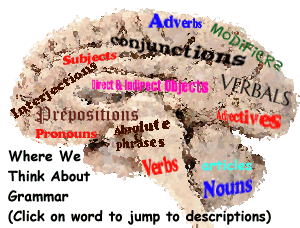Lost Causes
 I had an ex-mail exchange recently with someone abut the use of “Rev.” in relationship to my last name. It is a usage I abhor. Very few people would address a judge as “Hon. Jones,” so why “Rev. Smith”? The one is as incorrect grammatically as the other. But I find the “Rev.” usage in 19th century documents and increasingly used even by Episcopal clergy of themselves.
I had an ex-mail exchange recently with someone abut the use of “Rev.” in relationship to my last name. It is a usage I abhor. Very few people would address a judge as “Hon. Jones,” so why “Rev. Smith”? The one is as incorrect grammatically as the other. But I find the “Rev.” usage in 19th century documents and increasingly used even by Episcopal clergy of themselves.
I told the person I was e-mailing that I considered it a lost cause and received in reply a remonstrance. No cause should be considered lost. Well, maybe. But I have a short – and growing – list of lost causes and suggested in response that split infinitives and the misuse of “disinterested” were also lost causes. My correspondent – a literate and literary person – indicated in response that these issues escaped her entirely. That’s a lost cause.
Here’s a starter list of other, similar, lost causes.
Lie and lay. When I went to the hospital not long ago for a scan of some sort, the technician asked me to “lay” over there. “Lie,” said I; I’m not a package. “I’m not up on that,” said the technician. But I wonder whether someone who can’t tell me from a package or a hen can use the latest techno-gadgets successfully. The frightening truth is that good English is not required to use stuff I barely begin to understand.
Temperature. The word has an “r” in it.. The weather people in the local studio make not the slightest acknowledgment of that fact. “Tempachure,” is their standard word for degrees of hot and cold. The nearest dictionary to my hand allows “temp-ra-chur” but not omission of the “r.” If weather people can’t properly pronounce a word basic to their profession, what do they really know about it? (Well, how often, actually, do they get it right?)
Like and “as if.” “It looked like it was going to rain,” is a grammatically incoherent sentence. “It looked like a storm cloud,” makes sense, but “it was going to rain” is not something that can be looked like. There’s a subordinate issue here of the subjunctive, but that goes beyond lost causes and into the realm of totally dead and buried causes.
Shall we discuss “hopefully?” “Hopefully I will see you tomorrow.” There are two issues here: 1) will I see you tomorrow? and 2) will you be hopeful when you see me tomorrow? The sentence given indicates a certainty that you will see me and that you will be hopeful at that time, but the intention is to indicate a hope to see me, and that is very different.
I and me. One of the earliest childhood errors involves these two pronouns: “Me and Billy are going outside to play.” But I know people with PhDs who get it wrong: “Would you save some of that so Sally and me can have some?”
I could go on but I probably should have stopped sooner. In a world where American leaders authorize torture of prisoners, does it really matter whether we have a complete command of English grammar?
But isn’t it also true that the American President (think “nucular”) with the least respect for the rules of proper pronunciation and grammar also showed the least respect for the Constitution and basic norms of human rights? Is there, perhaps, a connection? 
 Christopher L. Webber
Christopher L. Webber